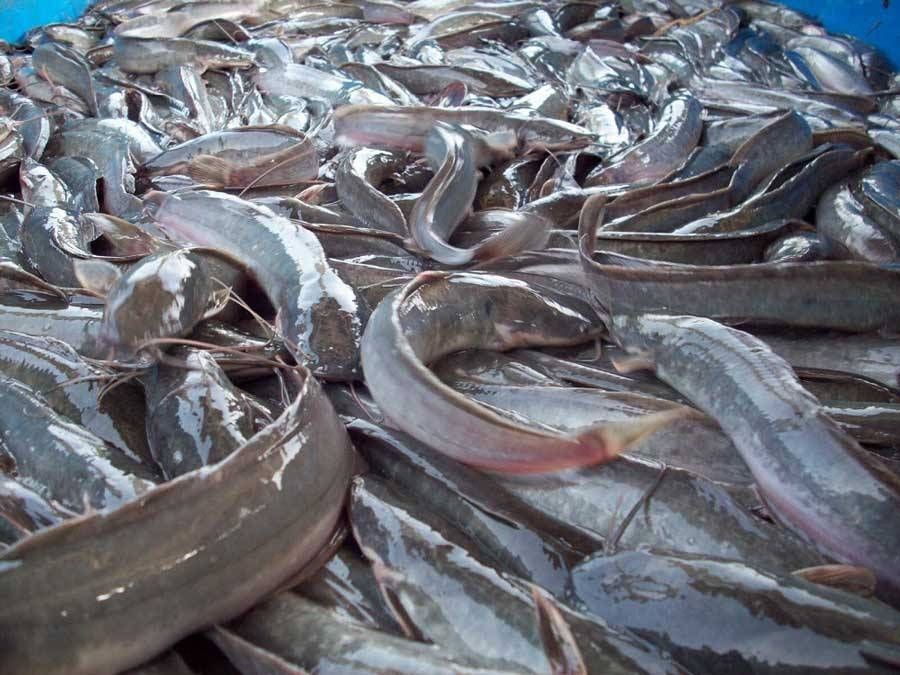Introduction
In today’s world, sustainability is more important than ever. Consumers are increasingly aware of the impact their food choices have on the environment and are seeking out products that not only nourish their bodies but also support ethical and sustainable practices. African Catfish is a prime example of a product that aligns with these values. Our kiln-dried African Catfish is not only rich in nutrients but is also sourced through sustainable fishing practices that benefit both local communities and the environment. In this article, we’ll explore how choosing African Catfish contributes to a more sustainable future.
Sustainable Fishing: What It Means
Sustainable fishing refers to practices that ensure fish populations remain healthy and productive over the long term while minimizing environmental impact. This approach involves carefully managing fish stocks, reducing bycatch (the unintentional capture of non-target species), and protecting marine ecosystems. By adhering to sustainable fishing methods, the production of African Catfish not only provides high-quality food but also safeguards the future of our oceans and freshwater systems.
How African Catfish is Sustainably Sourced
The sourcing of African Catfish involves several sustainable practices that set it apart from other types of seafood:
- Controlled Aquaculture: African Catfish is often farmed using aquaculture, which allows for controlled breeding, feeding, and harvesting. This method reduces pressure on wild fish populations and ensures that the fish are raised in environments that mimic their natural habitats, promoting healthy growth without the need for harmful chemicals or antibiotics.
- Minimized Environmental Impact: Aquaculture systems for African Catfish are designed to minimize environmental impact. This includes the efficient use of water, proper waste management, and the careful selection of feed to reduce the ecological footprint of fish farming. These practices ensure that the production of African Catfish has a lower impact on the environment compared to traditional fishing methods.
- Support for Local Communities: The farming and processing of African Catfish provide vital economic support to local communities, particularly in regions where agriculture may be challenging. By choosing sustainably sourced African Catfish, consumers are helping to create jobs and support livelihoods in these communities, fostering economic development and food security.
The Environmental Benefits of Choosing African Catfish
Opting for sustainably sourced African Catfish offers several environmental benefits:
- Preservation of Fish Stocks: Sustainable aquaculture helps maintain healthy fish populations, preventing overfishing and ensuring that African Catfish remains available for future generations.
- Protection of Biodiversity: By reducing the impact on wild fish populations and minimizing bycatch, the farming of African Catfish helps protect marine and freshwater biodiversity, ensuring that ecosystems remain balanced and resilient.
- Reduced Carbon Footprint: The efficient farming practices used in African Catfish aquaculture contribute to a lower carbon footprint compared to wild-caught fish. This is due to reduced energy consumption, transportation, and processing requirements, making it a more environmentally friendly choice.
How to Support Sustainability with Your Food Choices
Supporting sustainable food systems starts with making informed choices. Here are a few ways you can contribute to sustainability when it comes to seafood:
- Choose Sustainably Sourced Products: Look for labels or certifications that indicate sustainable sourcing. When buying African Catfish, be assured that you are choosing a product that supports ethical practices and environmental stewardship.
- Reduce Food Waste: Use every part of the fish and plan your meals to avoid waste. Kiln-dried African Catfish has a long shelf life, making it a convenient option that can be stored and used as needed.
- Support Local and Small-Scale Producers: By purchasing from local and small-scale fish farms, you are directly supporting communities that engage in sustainable practices, helping to build resilient and sustainable food systems.
Conclusion
Choosing African Catfish is more than just a healthy dietary choice; it’s a commitment to sustainability. From controlled aquaculture to minimized environmental impact, African Catfish represents a responsible and ethical option for consumers who care about the environment and the well-being of local communities. By making sustainable seafood choices, you can help protect our planet’s resources while enjoying the rich, smoky flavor of our kiln-dried African Catfish.





Ok